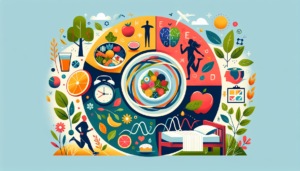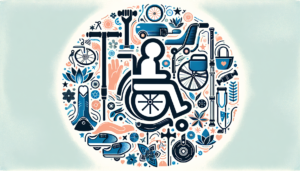The Role of Diet in Promoting Hair Growth
The Role of Diet in Promoting Hair Growth
Understanding Hair Growth
Hair growth is a complex biological process influenced by various factors, including genetics, hormonal changes, and environmental factors. The hair growth cycle has three main phases: anagen (growth phase), catagen (transitional phase), and telogen (resting phase). Anagen lasts for several years, while catagen may last a few weeks, and telogen can last several months. Nutrition plays a crucial role throughout these phases, directly impacting the health and vitality of hair.
Essential Nutrients for Hair Health
-
Proteins: The Building Blocks of Hair
Hair is primarily composed of a protein called keratin, hence adequate protein intake is crucial for hair strength and growth. Foods rich in protein include:- Meat and Poultry: Chicken, turkey, and lean cuts of beef contain high-quality proteins that support hair structure.
- Fish: Salmon and mackerel are not only rich in protein but also provide omega-3 fatty acids that promote scalp health.
- Legumes: Beans, lentils, and peas are excellent plant-based protein sources that also contribute to overall hair health.
- Dairy: Yogurt, cheese, and milk provide both protein and calcium, essential for hair growth.
-
Vitamins: Nature’s Growth Supporters
Various vitamins support different aspects of hair health:- Vitamin A: Essential for cell growth, including hair cells. Foods rich in beta-carotene (like carrots and sweet potatoes) convert to Vitamin A in the body.
- Vitamin B Complex: Particularly biotin (B7), has gained attention for its association with hair health. Foods high in B vitamins include eggs, whole grains, and nuts.
- Vitamin C: This antioxidant supports collagen production, crucial for hair structure. Citrus fruits, strawberries, and bell peppers are excellent sources.
- Vitamin D: Linked to hair follicle cycling, Vitamin D levels can be boosted through sunlight exposure and foods like fatty fish and fortified products.
-
Minerals: The Unsung Heroes
Certain minerals play a significant role in maintaining healthy hair:- Iron: Deficiency in iron can lead to hair loss, particularly in women. Red meat, spinach, lentils, and fortified cereals are good sources.
- Zinc: Important for hair tissue growth and repair. Shellfish, pumpkin seeds, and beans are rich in zinc.
- Selenium: Protects hair follicles from oxidative damage. Brazil nuts are one of the richest sources of selenium.
-
Healthy Fats: Nourishing from Within
Healthy fats, particularly omega-3 fatty acids, support the health of hair follicles by providing nourishment needed for healthy hair growth:- Avocados: Rich in monounsaturated fats and vitamin E, they support scalp health and promote hair growth.
- Nuts and Seeds: Walnuts and flaxseeds provide omega-3s, zinc, and vitamins, helping maintain moisture in the hair.
- Olive Oil: Its antioxidant properties help to fight free radicals that can inhibit hair growth.
- Hydration: The Often Overlooked Factor
Hydration is critical for maintaining optimal hair health. Hair needs sufficient moisture to prevent brittleness and breakage. Drinking plenty of water and consuming water-rich foods like cucumbers and watermelon can help ensure that hair follicles are adequately hydrated.
Foods to Incorporate for Optimal Hair Growth
In a balanced diet promoting hair growth, certain foods should be prioritized:
- Eggs: Packed with protein and biotin, eggs are one of the best food sources for promoting healthy hair growth.
- Berries: Rich in vitamins, antioxidants, and fiber, berries, especially blueberries and strawberries, support overall bodily health and encourage healthy hair.
- Spinach: This leafy green contains iron, folate, and vitamins A and C, essential for hair growth, making it a superfood for hair health.
- Fatty Fish: Salmon and mackerel are not only great sources of protein but also omega-3s, promoting scalp health and hair vitality.
- Sweet Potatoes: Rich in beta-carotene, they convert to vitamin A in the body, crucial for hair cell production and maintenance.
The Impact of Diet on Hair Disorders
Dietary deficiencies can lead to various hair conditions, such as:
- Telogen Effluvium: Often triggered by nutritional deficiency, resulting in temporary hair loss.
- Alopecia Areata: An autoimmune condition where dietary imbalance can exacerbate symptoms.
- Pattern Baldness: While genetics play the primary role, nutrition can influence the progression and experience of hair loss.
Foods to Avoid for Healthy Hair
Certain dietary practices can hinder hair growth:
- Processed Foods: High in sugars and unhealthy fats, these can lead to inflammation and poor hair follicle health.
- Sugary Beverages: Excess sugar can lead to spike insulin levels and hair loss.
- Trans Fats: Found in fried and processed foods, trans fats can affect hormone levels and contribute to hair thinning.
Lifestyle Changes to Enhance Hair Growth Through Diet
- Balanced Eating: Focus on a diverse diet that includes a variety of fruits, vegetables, whole grains, and lean proteins to ensure a well-rounded nutrient intake.
- Regular Eating Schedule: Maintaining a consistent eating pattern can help stabilize nutrient levels in the body, supporting hair growth.
- Supplements: If dietary restrictions prevent adequate nutrient intake, consider consulting a healthcare provider about the use of supplements, particularly biotin, vitamin D, and omega-3s.
- Avoid Extreme Dieting: Rapid weight loss or extreme calorie deficits can lead to nutrient deficiencies, which directly impact hair growth.
Monitoring Hair Health
It’s important to keep track of changes in hair growth and health. Signs of nutrient deficiencies include:
- Increased hair shedding
- Brittle or dry hair
- Scalp irritation
In chronic cases, consulting with healthcare professionals such as a dietitian or dermatologist can provide tailored advice and treatment options.
Conclusion
Integrating a balanced diet rich in essential nutrients can significantly impact hair growth, health, and vitality. By focusing on high-quality proteins, vitamins, minerals, and healthy fats while avoiding harmful dietary choices, individuals can enhance their hair growth potential and overall well-being. Regular monitoring and adjustments can foster an environment that encourages lush, healthy hair.








